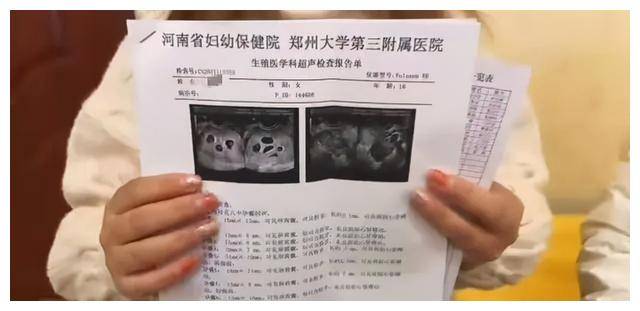Media reporters Zhang Yuhui and Hu Haiyan
“Using ovulation-stimulating drugs and other assisted reproductive technologies can solve multiple fertility problems at once. Isn’t it a good choice to avoid pain multiple times?” “Such a situation leading to multiple births poses a greater risk to the pregnant woman’s life!” “In cases where the fetus is developing well, which one should be reduced?” On November 25, a news story about “Ms. Bai suffering from menstrual irregularities caused by polycystic ovary syndrome treated by a private institution, with the doctor inappropriately using ovulation-stimulating drugs leading to her having octuplets” sparked heated discussions. Reproductive experts from Henan Provincial Maternal and Child Health Hospital indicated that to ensure the safety of both mother and child, the next step should consider performing a reduction surgery for Ms. Bai.
Under what circumstances can assisted reproductive techniques be used? What medical ethical issues exist concerning the use of ovulation-stimulating injections and reduction surgeries? Regarding these questions from various sectors of society, reporters from The Physician’s Journal interviewed Professor Tan Li, Director of the Reproductive Medicine Department at Zhengzhou University’s Second Affiliated Hospital, and Professor Li Yiting, President of the Beijing Medical Ethics Society, seeking their insights and professional advice.
Unreasonable use of ovulation-stimulating drugs increases the risk of disease
Tan Li explicitly stated that ovulation-stimulating drugs have strict usage regulations. For patients with menstrual irregularities, the first step should be to correct poor lifestyle habits. If no improvement is observed, doctors may recommend artificial cycle therapy, which involves using estrogen and progesterone to regulate the menstrual cycle.
“Ms. Bai’s use of ovulation-stimulating drugs resulting in multiple pregnancies will place her at significant risk during pregnancy, leading to various obstetric complications, while the fetuses may also face issues like malnutrition, low birth weight, and poor survival rates,” Tan Li remarked. Ovulation-stimulating drugs are suitable for patients with ovulation disorders and should only be used under the guidance of a doctor following a comprehensive examination and assessment. Treatment should start with low-dose oral ovulation-stimulating drugs, and only if there is no improvement should the use of ovulation-stimulating injections be considered, with strict monitoring throughout, ultimately aiming to achieve assisted conception. Unreasonable use of ovulation-stimulating drugs can lead to excessive ovarian stimulation and side effects, and in severe cases, increase the risk of ovarian hyperstimulation syndrome in patients.
Comprehensive consideration of the risks of reduction surgery, making decisions based on the pregnant woman’s opinions
“Since the advent of assisted reproductive technology, it has brought hope to patients and families with fertility dysfunction, and has contributed to the progress of human society, making it a commendable technology,” said Li Yiting.
Regarding the doctor’s suggestion to proceed with reduction surgery, how should ethical considerations be weighed? Li Yiting indicated that the principles of medical ethics—prioritizing the patient’s interests, respect, benefit, non-maleficence, and justice—should be followed. The primary concern should be the patient’s interests, which help protect the life and health of the pregnant woman; benefit future generations; healthcare professionals must obtain informed consent from the patient before making medical judgments and implementing treatment measures, fully respecting the pregnant woman’s autonomy in making decisions about her medical issues, with her opinions being crucial.
Li Yiting mentioned that when informed consent is obtained, and a written consent form is signed, any ethical issues should be submitted for discussion by the Medical Ethics Committee, and its opinions and recommendations will serve as a reference for the doctor’s decision-making.
Correctly applying assisted reproductive technology to avoid giving illegal activities an opportunity
It is noteworthy that with the full implementation of the national three-child policy, many older mothers have also joined the ranks of those wishing to have more children, and some even entertain the idea of “having multiple births at once.” Li Yiting believes that we must adhere to the rules of natural conception. Assisted reproductive technology should be applied to those facing reproductive barriers or infertility due to medical reasons; otherwise, ethical justification cannot be obtained.
Tan Li stated that for patients seeking fertility assistance, doctors will provide targeted advice based on the patient’s examination results, striving to assist patients in achieving natural conception. For older individuals who have been trying to conceive for half a year without success, the first step should be to investigate the underlying causes of infertility, conducting functional assessments for both partners to determine whether it is due to issues like blocked fallopian tubes in the female or low sperm viability in the male, allowing for targeted treatment and assisted reproduction.
“Assisted reproductive technology has strict management regulations, and even to increase the chances of pregnancy, the number of embryos transferred should not exceed two.”


